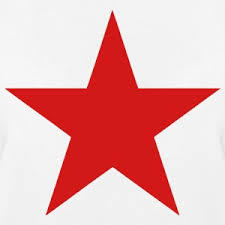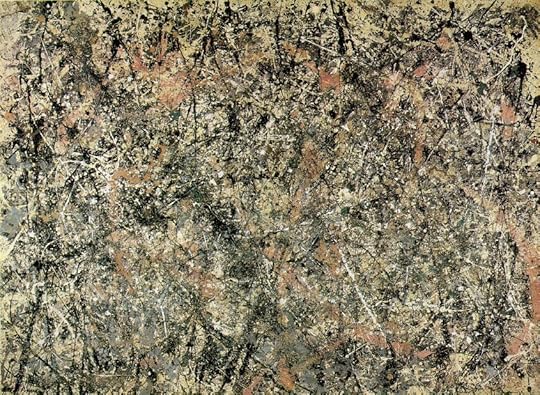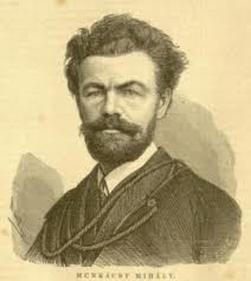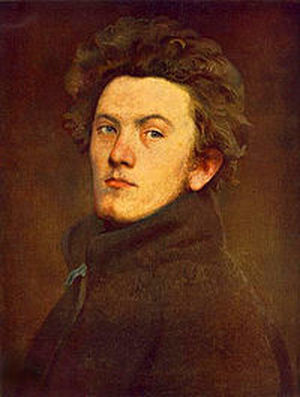Francis Berger's Blog, page 179
January 29, 2017
A Few Short Thoughts About Truth: Jordan Peterson
The last point Peterson makes in this short clip will be contentious to most.
Published on January 29, 2017 11:32
Communism Just as Bad as Fascism? Not in the West, it Ain't
 That fascism was and is an inherently evil ideology is accepted without much serious debate in the West. In fact, we have been instructed to believe that fascism, and its nationalist-socialist offspring, are the greatest evils that have ever plagued mankind and the Earth. You will not get much objection from me on this point - I agree, fascism and nazism are inherently evil ideologies that have wreaked great harm upon humanity, and care should be taken to ensure this ideology does not rear its ugly head again in the future.
That fascism was and is an inherently evil ideology is accepted without much serious debate in the West. In fact, we have been instructed to believe that fascism, and its nationalist-socialist offspring, are the greatest evils that have ever plagued mankind and the Earth. You will not get much objection from me on this point - I agree, fascism and nazism are inherently evil ideologies that have wreaked great harm upon humanity, and care should be taken to ensure this ideology does not rear its ugly head again in the future. The horrors of fascism and nazism are well-known, but there is a massive blind spot in the West when it comes to fully acknowledging the horrors of communism. Unlike fascism, communism is not anathema in the West. Despite the efforts of writers like Solzhenitsyn and others, despite extensive historical records and documents, despite countless eye witness accounts and terrifying personal testimony, the terrible legacy of communism has not ignited the same levels of condemnation in the West as fascism has.
On the contrary, many celebrated intellectuals and thinkers were or are professed communists and either enjoyed or continue to enjoy rewarding careers in academia or in the media despite their admiration or support of the Marxist cause. Some, like Slavoj Zizek, have built an entire careers on the foundations of Marxist apologetics and obtuse French Marxist psychoanalysis. You can talk about communism as a viable political option at any Starbucks in the West without drawing too much objection from anyone sitting at nearby tables. The name Stalin does not inspire great same depths of scorn on the facial expressions of most when his name is mentioned. And of course, no hipster wardrobe would be complete without at least a few items of clothing featuring Comrade Lenin, a red star, hammers-and-sickles, or Che Guevara.
This has always bothered me and it continues to bother me, especially now when the West is seized by a collective paranoia over the rise of fascism.
Don't misunderstand. I am no supporter of fascism; I have no crooked cross in my head. The ideology is evil and loathesome. What seems to separate me from so many others is my conviction that communism / Marxism is just as evil and loathesome and deserves to be addressed and treated with the same contempt.
But for the most part it isn't, and it does not seem like it will ever be. A tremendous shortcoming.
Published on January 29, 2017 10:26
January 26, 2017
Post-Modern Aesthetics as a Gauge For Detecting The Quality of the Mind and Spirit
 Jackson Polloack: Number One (Lavender Mist) Is it just me, or is there actually not a trace of fucking lavender in this mess? If you experience confusion, revulsion, scorn, or a combination of any or all of the above whenever you see a "masterpiece" like this, don't despair. You are not alone and there is nothing wrong with you. Your not uncultured, or unsophisticated, or uncouth, or unrefined. On the contrary, if you find yourself sneering at post-modern aesthetics in general, regard it as a sure sign of your integrity, health, and sanity.
Jackson Polloack: Number One (Lavender Mist) Is it just me, or is there actually not a trace of fucking lavender in this mess? If you experience confusion, revulsion, scorn, or a combination of any or all of the above whenever you see a "masterpiece" like this, don't despair. You are not alone and there is nothing wrong with you. Your not uncultured, or unsophisticated, or uncouth, or unrefined. On the contrary, if you find yourself sneering at post-modern aesthetics in general, regard it as a sure sign of your integrity, health, and sanity.
Published on January 26, 2017 10:20
January 25, 2017
A Tiny Sliver of My Work is Sure To Last For Posterity
 Statue of István Széchenyi, Sopron, Hungary. Jan. 25, 2017 - This is located a mere stone's throw from my workplace. To commemorate the 225th anniversary Count István Széchenyi's birth, the City of Sopron and a notable local civil organization initiated a plan to engrave one of Széchenyi's patriotic quotes into the pedestal of his statue that stands in the center of town in the aptly named Széchenyi Square.
Statue of István Széchenyi, Sopron, Hungary. Jan. 25, 2017 - This is located a mere stone's throw from my workplace. To commemorate the 225th anniversary Count István Széchenyi's birth, the City of Sopron and a notable local civil organization initiated a plan to engrave one of Széchenyi's patriotic quotes into the pedestal of his statue that stands in the center of town in the aptly named Széchenyi Square.The Hungarian quote was translated into three languages - German, Croation, and English. I was commissioned to do the English translation.
The city had a big unveiling ceremony back in September, but I do to other obligations, I did not have the chance to attend. Though I work a mere two hundred meters from the Széchenyi Square, I did not stop to see the engravings until today.
The engraved letters themselves are marvellous, but to be honest, I am not entirely satisfied with the translation that ended up on the plaque. I find it clunky and wordy. My first translation of the quote, which began with the dependent clause and left the main idea in one unit, was far better, in my opinion, but it was rejected because it did not match the syntactical structure of the original. I was under instruction to remain as faithful to the original Hungarian as possible, both in choice of diction and in terms of syntax. This is the bane of translating - giving a client exactly what they want even if what they want is not the best possible version.
Regardless, I am still proud of my work here; I believe it accurately mirrors both the diction and the tone of the original Hungarian. If nothing else, at least this small piece of my work will remain for posterity.
 The original Hungarian - „A hazaszeretet azon szent láng, melyért, bármily gyermeki érzelemnek gúnyolják is azt a világ hidegen számító cosmopolitái, nincs mit pirulnunk, mert a legtöbb magasztos cselekedet mégis innen vette, innen veszi, és innen fogja venni a Földön eredetét.”
The original Hungarian - „A hazaszeretet azon szent láng, melyért, bármily gyermeki érzelemnek gúnyolják is azt a világ hidegen számító cosmopolitái, nincs mit pirulnunk, mert a legtöbb magasztos cselekedet mégis innen vette, innen veszi, és innen fogja venni a Földön eredetét.”  The translation - "The love of one's country, even if it is frowned upon as a childish emotion by the cold calculations of the cosmopolitan world, is a sacred flame of which we should not feel ashamed because most of the sublime deeds that were, are, or will be performed on Earth stem from it."
The translation - "The love of one's country, even if it is frowned upon as a childish emotion by the cold calculations of the cosmopolitan world, is a sacred flame of which we should not feel ashamed because most of the sublime deeds that were, are, or will be performed on Earth stem from it."
Published on January 25, 2017 10:49
Stories Are the World of Value and Truth
Over the past few days, I have been spending much time thinking about the debate between Sam Harris and Jordan Peterson. The more I think about it, the more I gravitate toward's Peterson's side of the argument. This is hardly surprising since I more or less hold similar views concerning the nature of truth and have held these views for many years.
I touch upon the truth contained in stories in my novel The City of Earthly Desire. Toward the end of the novel, a young woman named Brigitta describes the legend of the white stag to the protagonist, Béla. A student of history, Brigitta is interested in the kinds of evidence and hard scientific fact Sam Harris expounds during his debate with Jordan Peterson, but she sees their limits when seen in a larger context of value and truth. After finishing describing the legend of the white stag, she states:
“Of course, it’s all nonsense, historically speaking, but that doesn’t make it untrue. Though I would never admit this to any historian, I have found legends and myths reveal more about a culture than cold, hard facts do.”
I discovered a direct connection to this line of thinking in Jordan Peterson's work a few days ago. On his website, he states:
I came over the course of a decade and a half to understand the meanings of many things that had been entirely hidden from me – things that I had cast away, stupidly, as of little worth. I came to realize that ideologies had a narrative structure – that they were stories, in a word – and that the emotional stability of individuals depended upon the integrity of their stories. I came to realize that stories had a religious substructure (or, to put it another way, that well-constructed stories had a nature so compelling that they gathered religious behaviors and attitudes around them, as a matter of course). I understood, finally, that the world that stories describe is not the objective world, but the world of value – and that it is in this world that we live, first and foremost.
Though it is dangerous to equate everything all characters say as representations of an author's beliefs in a novel, I honestly admit that I hold what Brigitta says toward the end of the book to be true. Though I only discovered Peterson's work a couple of months ago, it is very reassuring to know my beliefs in the power of stories and legends may not be as insane as they initially sound.
I touch upon the truth contained in stories in my novel The City of Earthly Desire. Toward the end of the novel, a young woman named Brigitta describes the legend of the white stag to the protagonist, Béla. A student of history, Brigitta is interested in the kinds of evidence and hard scientific fact Sam Harris expounds during his debate with Jordan Peterson, but she sees their limits when seen in a larger context of value and truth. After finishing describing the legend of the white stag, she states:
“Of course, it’s all nonsense, historically speaking, but that doesn’t make it untrue. Though I would never admit this to any historian, I have found legends and myths reveal more about a culture than cold, hard facts do.”
I discovered a direct connection to this line of thinking in Jordan Peterson's work a few days ago. On his website, he states:
I came over the course of a decade and a half to understand the meanings of many things that had been entirely hidden from me – things that I had cast away, stupidly, as of little worth. I came to realize that ideologies had a narrative structure – that they were stories, in a word – and that the emotional stability of individuals depended upon the integrity of their stories. I came to realize that stories had a religious substructure (or, to put it another way, that well-constructed stories had a nature so compelling that they gathered religious behaviors and attitudes around them, as a matter of course). I understood, finally, that the world that stories describe is not the objective world, but the world of value – and that it is in this world that we live, first and foremost.
Though it is dangerous to equate everything all characters say as representations of an author's beliefs in a novel, I honestly admit that I hold what Brigitta says toward the end of the book to be true. Though I only discovered Peterson's work a couple of months ago, it is very reassuring to know my beliefs in the power of stories and legends may not be as insane as they initially sound.
Published on January 25, 2017 05:50
January 23, 2017
Truth or Truth Beyond Truth? Sam Harris and Jordan Peterson Discuss the Nature of Truth
An interesting debate has ignited online since the release of the latest "Waking Up with Sam Harris" podcast a couple of days ago. The podcast, featuring psychologist Jordan Peterson, was a highly anticipated one. Though it fell short of expectations in many ways and became bogged down almost immediately on semantic definition of what truth means, I feel it has done a great service to revive discourse concerning the nature of truth.
Without going into excessive detail, I will summarize the discussion in the following way:
Harris: truth is cold, hard, scientific fact that exists with or without any moral attachments or human interpretation.
Peterson: scientific truth is true, but it is subordinate to and perhaps even false in the light of higher truth (what I have referred to in my novel as truth beyond truth).
In essence, the two men were working from different frameworks and neither seemed willing to step outside of their own. This lead to an impasse right at the start and the discourse quickly became mired in the epistemology and semantics of the very first question - What is true?
Some found the conversation frustrating and pointless, but I think it may help reinvigorate discourse concerning epistemology metaphysics, religion, and morality. Even if the podcast itself did not manage to touch on these topics in any meaningful way, it has inspired many to begin pondering the question of what truth is and the larger points that may have been made if Harris and Peterson managed to move past that initial sticking point concerning the nature of truth.
If you have two hours to spare, give it a listen. The experience will leave you fascinated or exaperated (or maybe a combination of both!)
Without going into excessive detail, I will summarize the discussion in the following way:
Harris: truth is cold, hard, scientific fact that exists with or without any moral attachments or human interpretation.
Peterson: scientific truth is true, but it is subordinate to and perhaps even false in the light of higher truth (what I have referred to in my novel as truth beyond truth).
In essence, the two men were working from different frameworks and neither seemed willing to step outside of their own. This lead to an impasse right at the start and the discourse quickly became mired in the epistemology and semantics of the very first question - What is true?
Some found the conversation frustrating and pointless, but I think it may help reinvigorate discourse concerning epistemology metaphysics, religion, and morality. Even if the podcast itself did not manage to touch on these topics in any meaningful way, it has inspired many to begin pondering the question of what truth is and the larger points that may have been made if Harris and Peterson managed to move past that initial sticking point concerning the nature of truth.
If you have two hours to spare, give it a listen. The experience will leave you fascinated or exaperated (or maybe a combination of both!)
Published on January 23, 2017 12:03
January 20, 2017
Hungarian Painters #3: Mihaly Munkácsy
 Perhaps the most famous Hungarian painter in whom I found inspiration for my novel was Mihály Munkácsy (20 February 1844 – 1 May 1900). Recognized in his own lifetime, Munkácsy is best known for his landcapes, genre paintings, and large-scale biblical scenes.
Perhaps the most famous Hungarian painter in whom I found inspiration for my novel was Mihály Munkácsy (20 February 1844 – 1 May 1900). Recognized in his own lifetime, Munkácsy is best known for his landcapes, genre paintings, and large-scale biblical scenes.  The Last Day of a Condemned Man
The Last Day of a Condemned Man  Milton Dictating Paradise Lost
Milton Dictating Paradise Lost  Trilogy
Trilogy
Published on January 20, 2017 05:38
January 18, 2017
White Stag or Red Star; The Choice is Crucial, Even Today
In my novel The City of Earthly Desire I conceptualized tradition and everything it contains within the symbol of the white stag, while communist ideology was, fittingly enough, represented by the red star. I chose the two symbols for the novel because they were historically appropriate for the time and place and partly because I believe they represent a deeper archetypal truth. The white stag appears in Hungarian mythology and the red star was ubiquitous in the country when it was ruled by the communists. I personally remember encountering the red star everywhere when I visited my family as a child.
But as I wrote the novel, I came to the conclusion that the struggle between the white stag and the red star was not limited to the pages of my book or a period in history. It is ongoing, even today and every one of us is forced to make a choice between the two at least once in our lives; however, it is more likely that this choice is actually broken down into an endless series of smaller choices, hundreds, perhaps thousands of them over a course of a lifetime. Regardless of how it happens, one thing is clear - when it comes to selecting between the white stag and red star, the choices you make are of monumental importance.
But as I wrote the novel, I came to the conclusion that the struggle between the white stag and the red star was not limited to the pages of my book or a period in history. It is ongoing, even today and every one of us is forced to make a choice between the two at least once in our lives; however, it is more likely that this choice is actually broken down into an endless series of smaller choices, hundreds, perhaps thousands of them over a course of a lifetime. Regardless of how it happens, one thing is clear - when it comes to selecting between the white stag and red star, the choices you make are of monumental importance.
Published on January 18, 2017 11:28
Hungarian Painters # 2: Bertalan Székely
 Self-portrait I drew the inspiration for the historical scenes and portraits Reinhardt Drixler paints in my novel The City of Earthly Desire from the Hungarian painter, Bertalan Székely whose decorative murals can still be seen in the Opera House and the Mátyás Church in Budapest. Székely worked primarily in the Romantic and Academic styles.
Self-portrait I drew the inspiration for the historical scenes and portraits Reinhardt Drixler paints in my novel The City of Earthly Desire from the Hungarian painter, Bertalan Székely whose decorative murals can still be seen in the Opera House and the Mátyás Church in Budapest. Székely worked primarily in the Romantic and Academic styles.  Women of Eger
Women of Eger  The Discovery of Louis II
The Discovery of Louis II  Portrait of a Woman
Portrait of a Woman
Published on January 18, 2017 11:05
January 15, 2017
The Writing Itself Must Be 99% Of Your Validation and Happiness: The Secret To Remaining a Contented Independent Author
You have written and self-published a novel you are proud of and think is good. Great! No matter which way you slice it, that is a major accomplishment. You should feel validated and happy . . . but you probably don't.
And that's where the problems begin.
You are seeking your validation and happiness in the wrong place. The validation and happiness must be almost entirely focused in the creation of your work and the opportunity of being able to put it out into the world.
What happens after that is anyone's guess.
You might be an amazing platform builder / marketer / social media star who launches an incredible campaign and end up selling a gazillion copies in a few months. Then again, you might end up selling a gazillion copies and then be ridiculed online for years afterward. Or your amazing media campaign might fall flat and go nowhere.
You might not do any marketing and get noticed by a publisher. That same publisher could make you the hottest writer in the world or they could screw you over with a cut-throat book contract.
You might do minimum marketing and build up respectable sales. You might to maximum marketing and have no sales at all.
Your work could end up wallowing in obscurity your whole life and be discovered only after you die. You work could bring you fame and riches in your life and then drift into obscurity after you die. Or your work could be obscure forever.
The possibilities are endless. In the realm of self-publishing, anything could happen. Anything. It's chaotic and unpredictable and it is precisely for this reason that you should not peg notions of validation or happiness on the success or failure of your book in the marketplace.
Validation and happiness must be almost entirely confined to the writing itself. Look there to find your happiness. That you have the chance to put your work out onto the market is a merely an added bonus. After that, be ambitious, strive for whatever notion of success you desire, but for God's sake don't let rankings or sales or media attention be the measures for your happiness.
I guarantee you will be setting yourself up for a disappointment, even if you surpass your wildest expectations in terms of success.
And that's where the problems begin.
You are seeking your validation and happiness in the wrong place. The validation and happiness must be almost entirely focused in the creation of your work and the opportunity of being able to put it out into the world.
What happens after that is anyone's guess.
You might be an amazing platform builder / marketer / social media star who launches an incredible campaign and end up selling a gazillion copies in a few months. Then again, you might end up selling a gazillion copies and then be ridiculed online for years afterward. Or your amazing media campaign might fall flat and go nowhere.
You might not do any marketing and get noticed by a publisher. That same publisher could make you the hottest writer in the world or they could screw you over with a cut-throat book contract.
You might do minimum marketing and build up respectable sales. You might to maximum marketing and have no sales at all.
Your work could end up wallowing in obscurity your whole life and be discovered only after you die. You work could bring you fame and riches in your life and then drift into obscurity after you die. Or your work could be obscure forever.
The possibilities are endless. In the realm of self-publishing, anything could happen. Anything. It's chaotic and unpredictable and it is precisely for this reason that you should not peg notions of validation or happiness on the success or failure of your book in the marketplace.
Validation and happiness must be almost entirely confined to the writing itself. Look there to find your happiness. That you have the chance to put your work out onto the market is a merely an added bonus. After that, be ambitious, strive for whatever notion of success you desire, but for God's sake don't let rankings or sales or media attention be the measures for your happiness.
I guarantee you will be setting yourself up for a disappointment, even if you surpass your wildest expectations in terms of success.
Published on January 15, 2017 11:46



